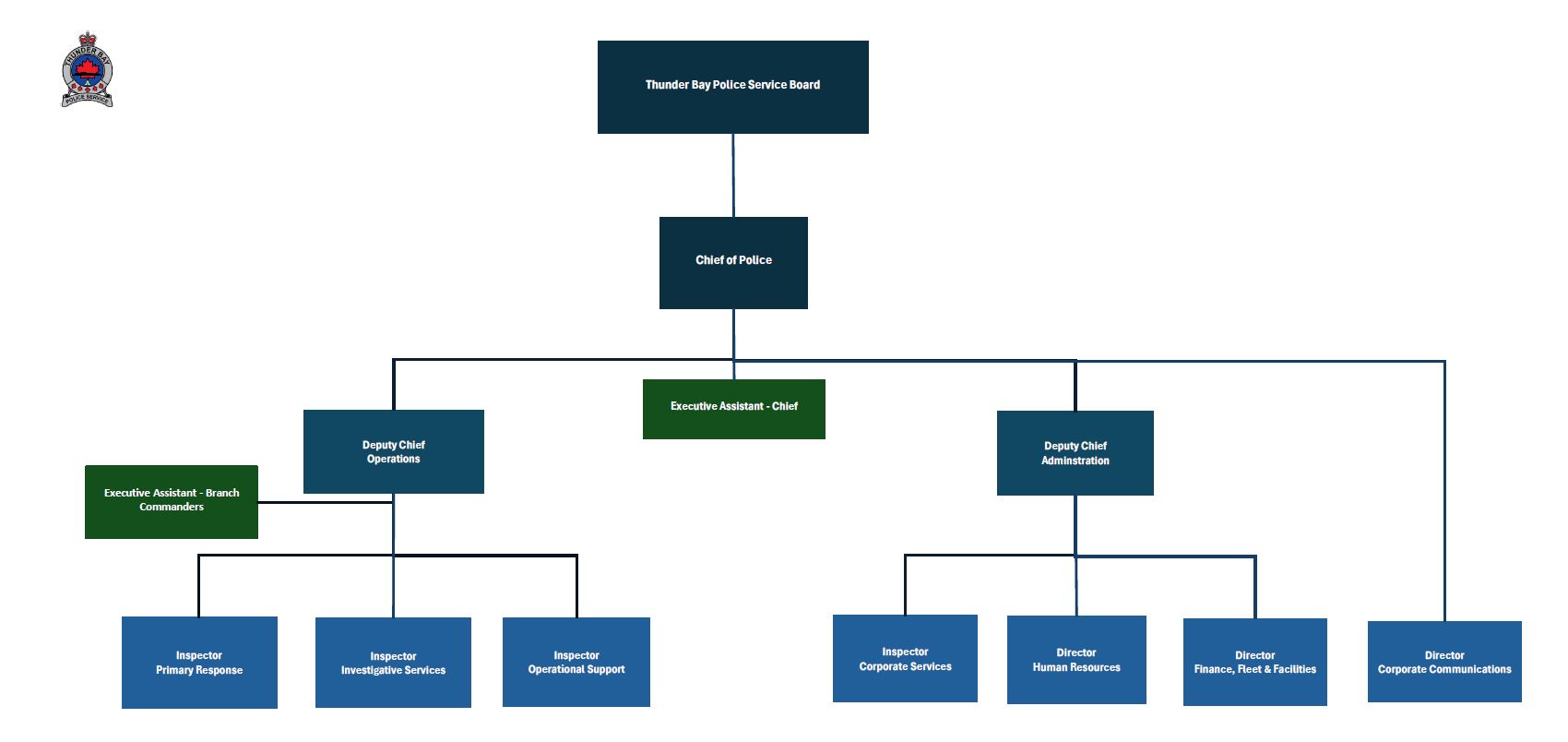Organizational Structure/Branches
The Thunder Bay Police Service is comprised of four branches. Three branches are operations focused, while the remaining are support focused. The operation branches include: Primary Response, Investigative Services, Operational Support, and Corporate Services.
This page is where you can learn about the various units that makeup these branches, and how they all come together to create a functioning municipal police service that handles the broad needs of its community.
Primary Response
More InformationFrom emergencies to non-urgent matters, the Primary Response Branch is the public’s first point of contact. It includes frontline units like Patrol, Emergency Task, Canine, and Traffic, while non-emergency support is handled by the Patrol Support Callback Unit and Resource Front Desk at TBPS headquarters.
Investigative Services
More InformationThe Investigative Services Branch is dedicated to solving crimes, protecting victims, and bringing offenders to justice. This branch specializes in complex investigations, including homicide, major crimes, drug enforcement, cybercrime, and financial fraud. With a commitment to thorough analysis, intelligence gathering, and collaboration, Investigative Services works tirelessly to uphold law and order in the community.
Corporate Services
More InformationThe Support Services Division ensures the efficiency, accountability, and preparedness of the Thunder Bay Police Service. This includes Human Resources & Recruitment, attracting top talent; Risk Management, maintaining policies and quality assurance; Professional Standards & Complaints, overseeing accountability; Training, ensuring officers meet legislative and operational standards; and Property & Stores, managing evidence and found property with strict compliance.
Operational Support
More InformationThe Thunder Bay Police Service is committed to effective and compassionate policing through specialized units. The IMPACT Unit, in partnership with the Canadian Mental Health Association, pairs trained officers with crisis workers to provide a more appropriate response to mental health-related calls. The Community Oriented Response & Engagement (CORE) Unit focuses on high-visibility policing, tackling problem areas, and addressing root causes of crime through targeted initiatives and community partnerships.


